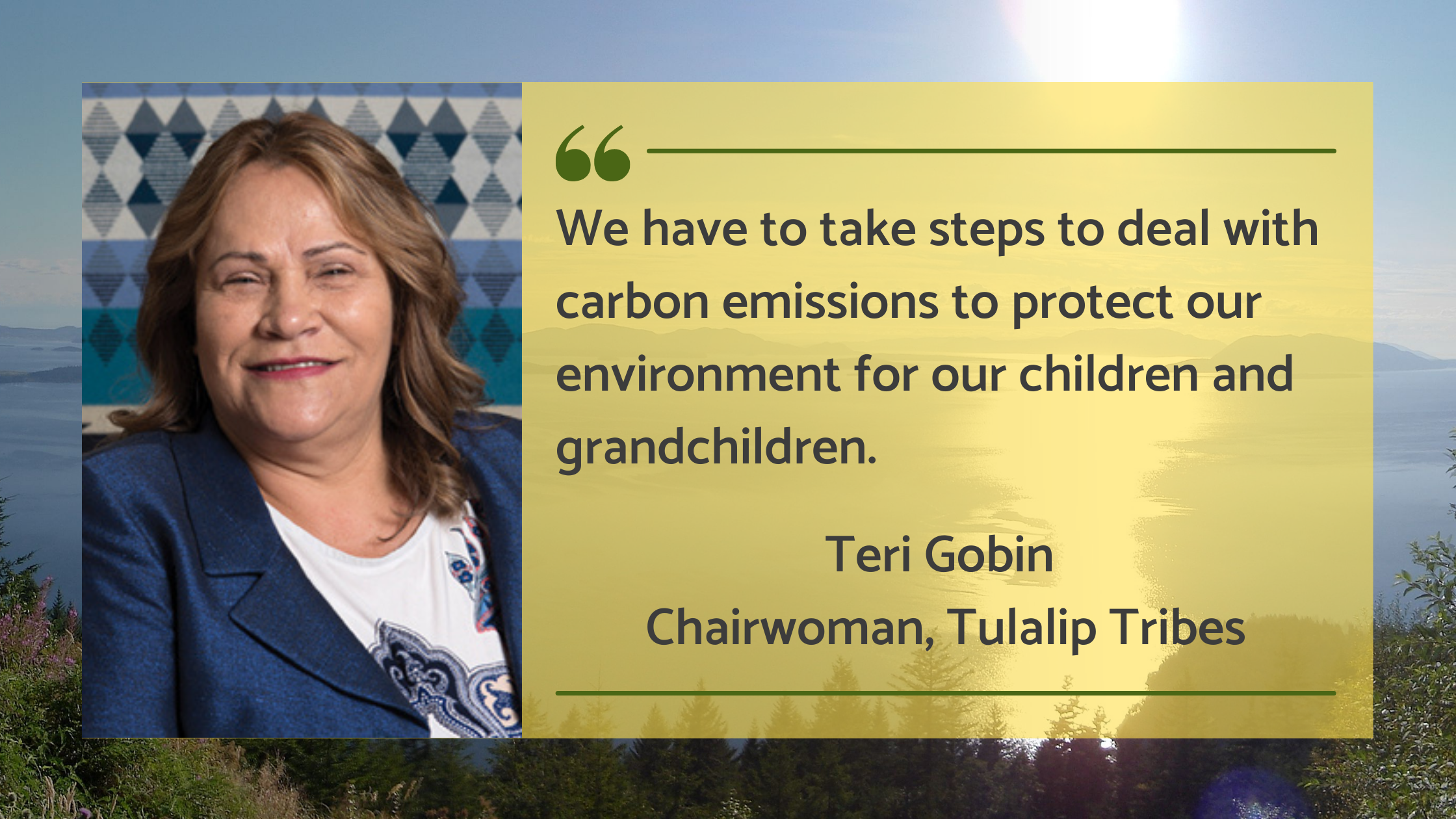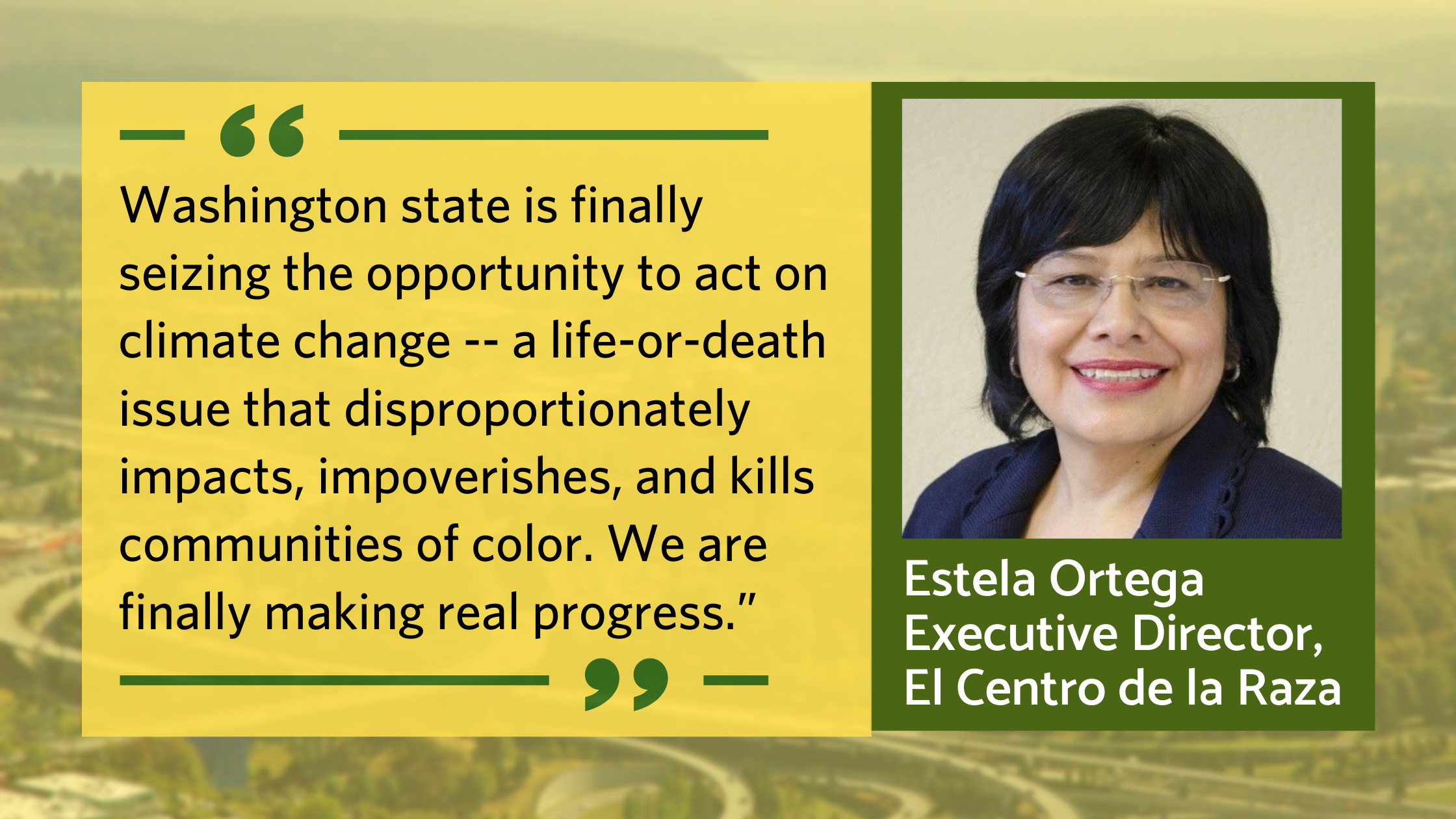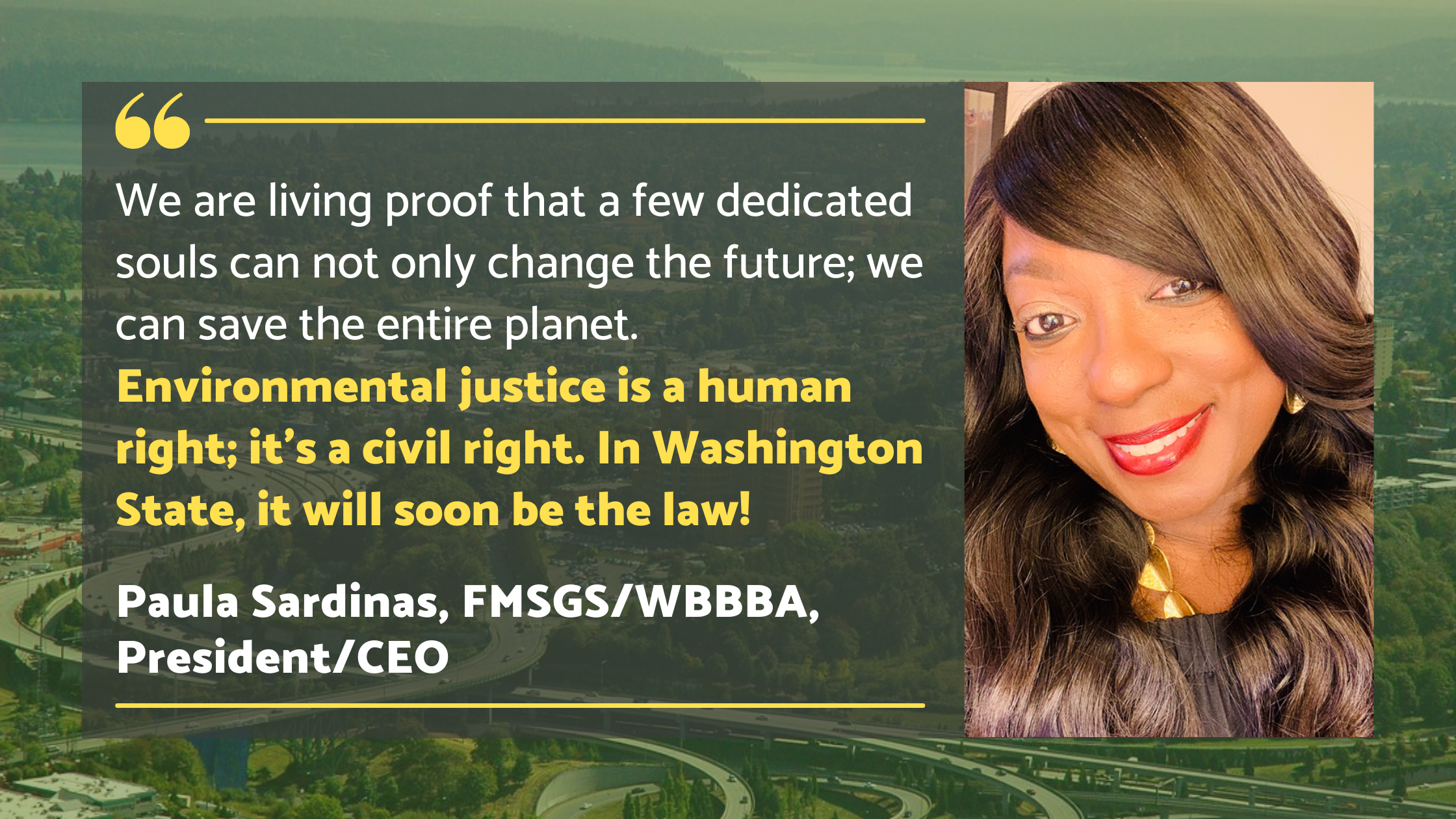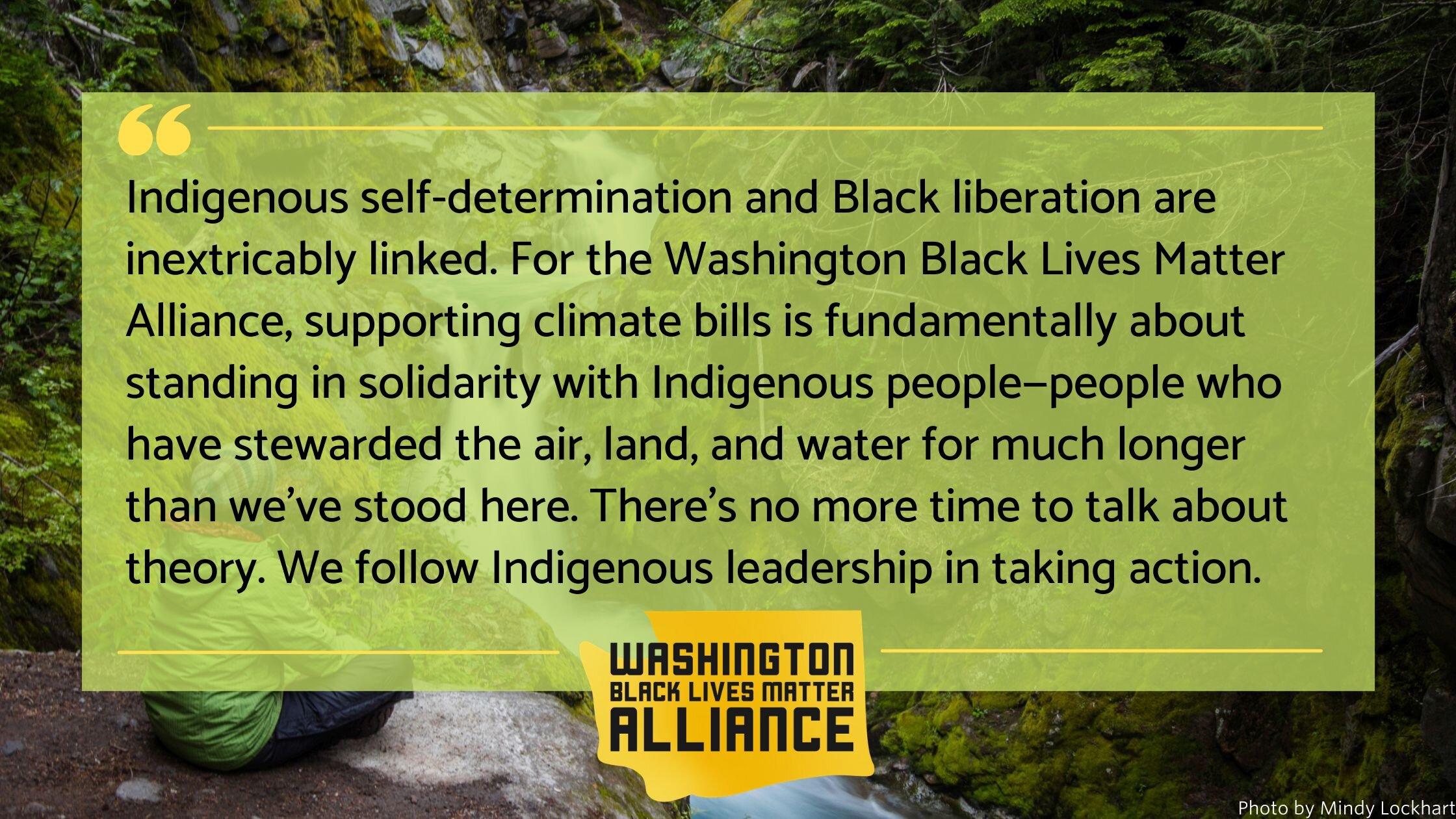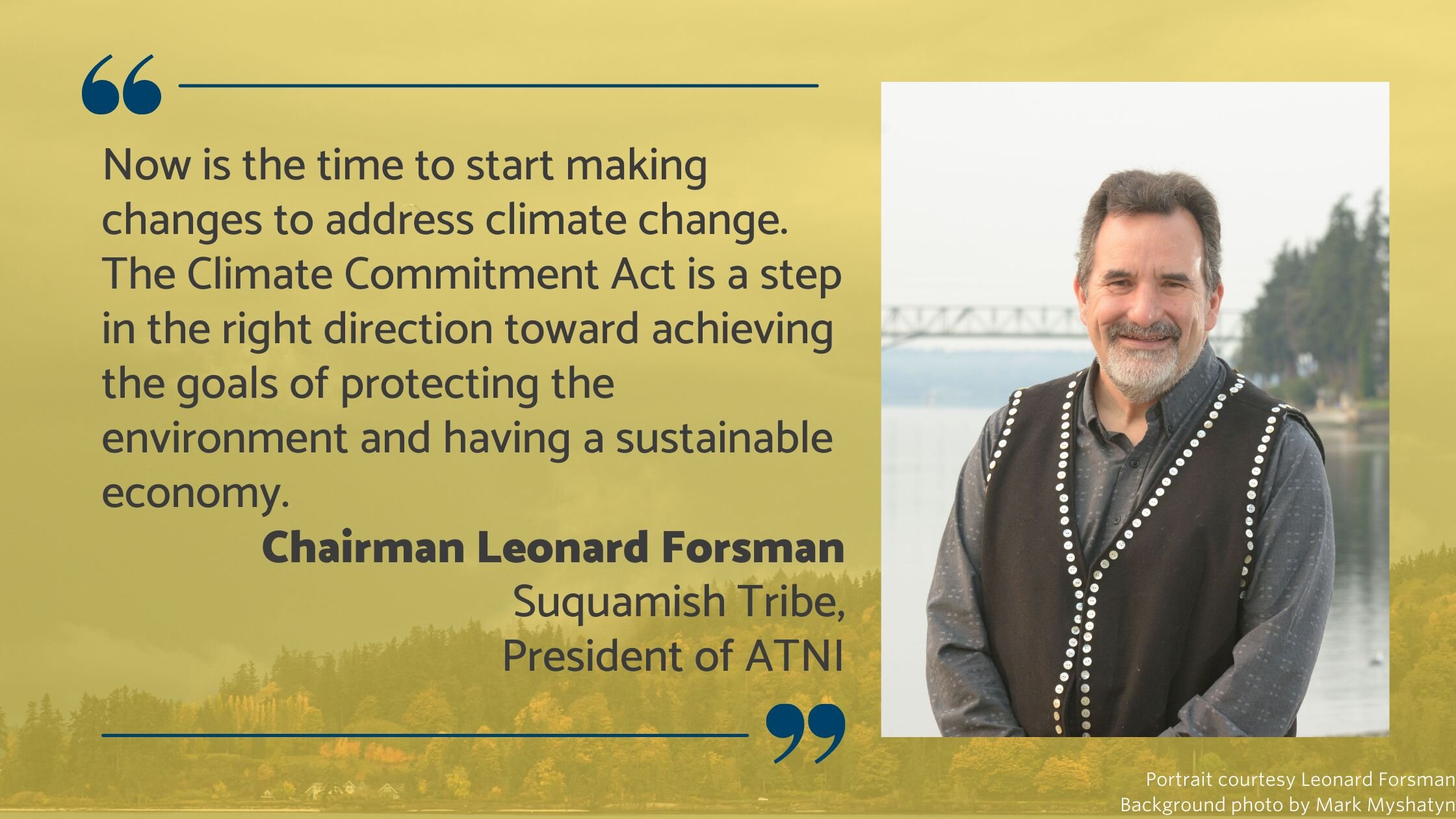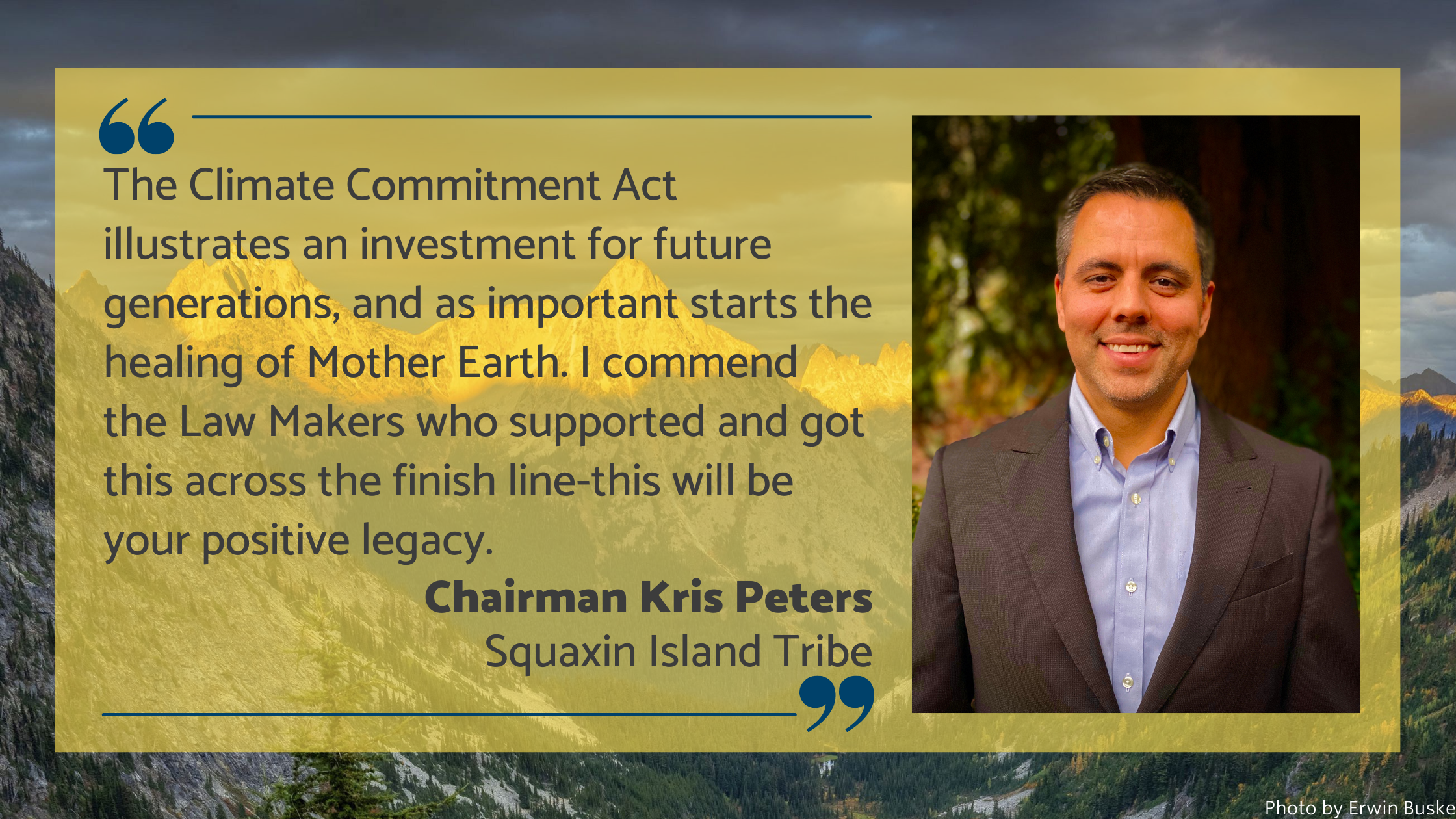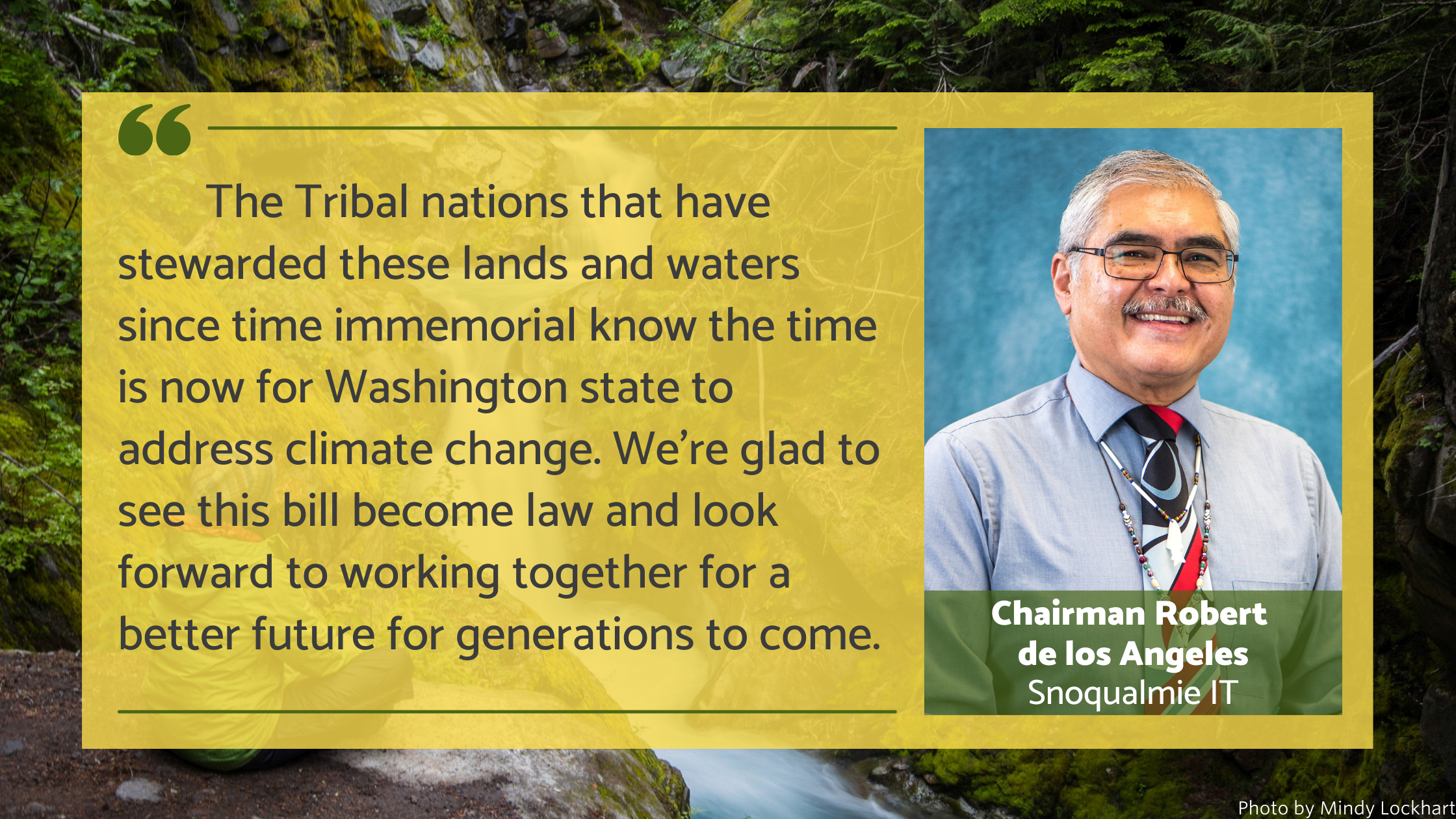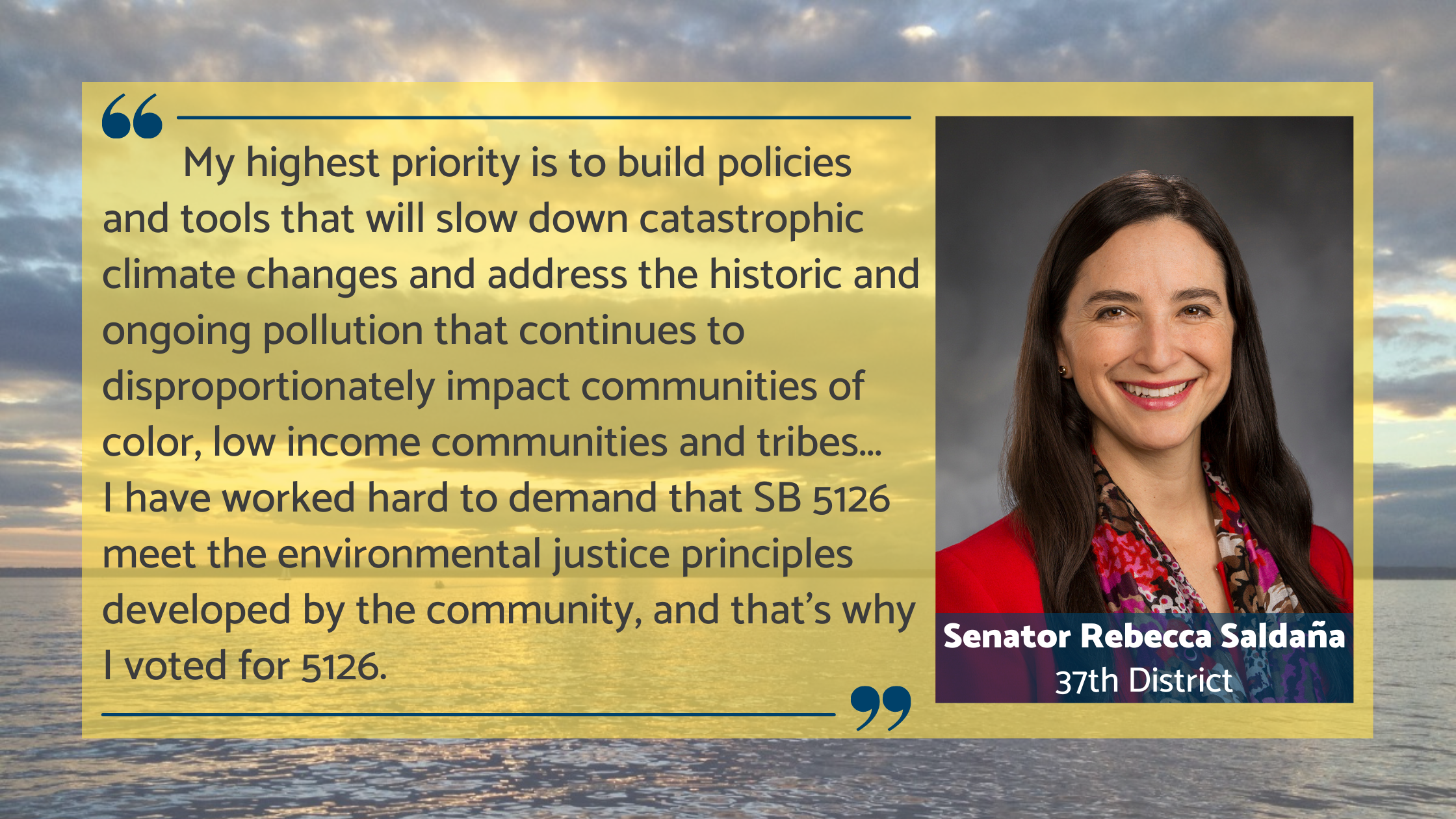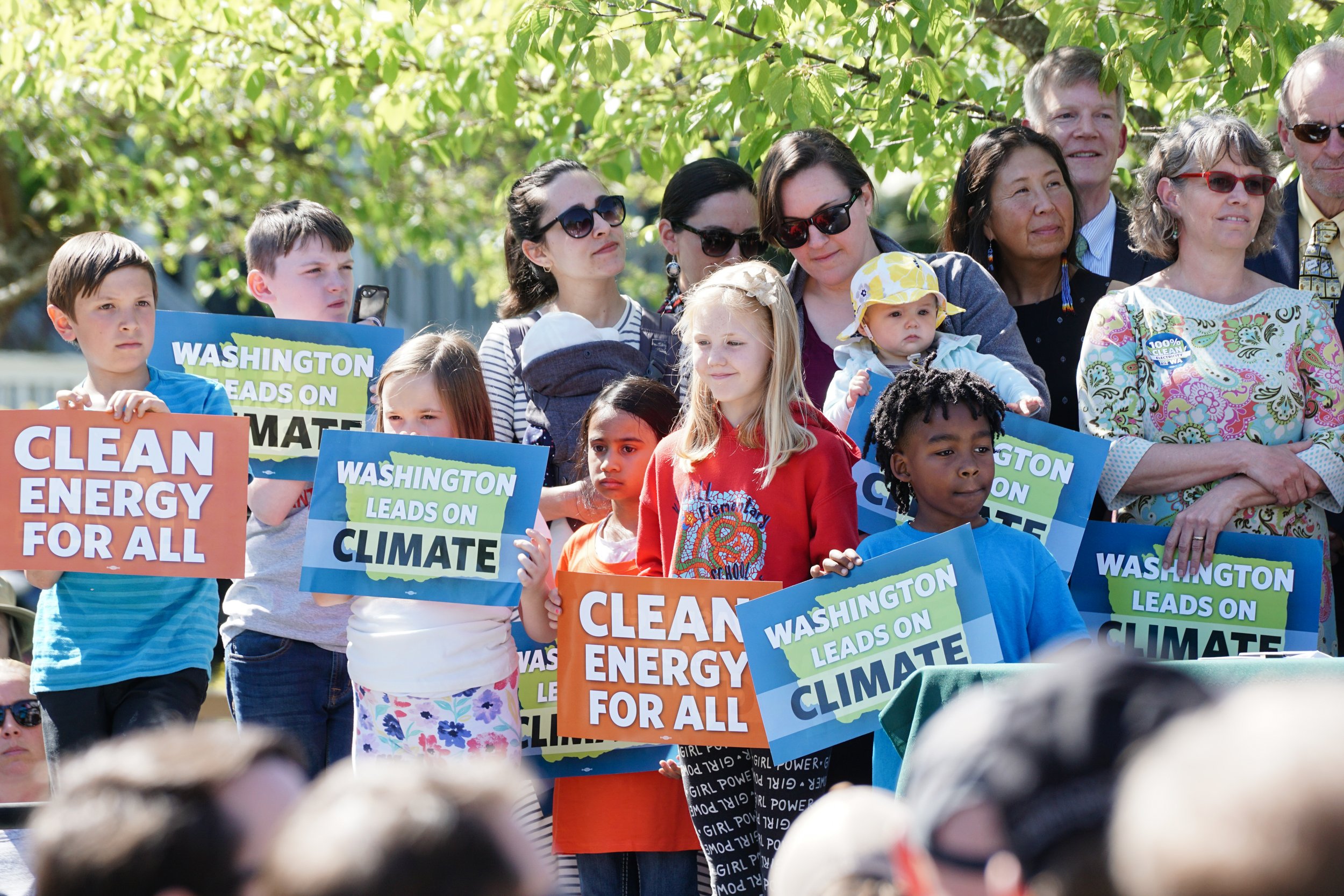The Washington Legislature has enacted historic environmental justice and climate legislation. The leadership of Tribal nations, Black-led and Latinx-led organizations, and other groups rooted in communities of color has been crucial to reaching this milestone as a state.
The Healthy Environment for All (HEAL) Act, the Climate Commitment Act and the Clean Fuel Standard are big strides toward a more sustainable future.
The success of the Climate Commitment Act is thanks in large part to the deep engagement of Tribal leaders from across our region. We are humbled to work in partnership with Tribal nations and organizations, their elected leaders and their staff on this and many other conservation initiatives across the state. As the original stewards of the land and waters we call Washington, Tribal support for and engagement with climate and environmental policy at the Legislature is indispensable.
It's imperative that the state engages in initial and ongoing consultation with Tribal nations to ensure that implementation of the Climate Commitment Act respects tribal sovereignty and treaty rights. We are disappointed with Governor Inslee’s veto of an essential section on tribal consent in the Climate Commitment Act. However, we are committed to following the lead of our tribal government partners in ensuring their treaty rights are respected and sovereignty honored.
We’re grateful to advocates from Black- and Latinx-led community organizations, whose voices were and are crucial to shaping policy that will truly work for all Washingtonians. Also critical to this year’s success: the growing representation of women and people of color in the Legislature. Each of the past two Legislatures have had record-setting numbers of members of color, whose knowledge and experience has clearly changed the entire body’s commitment to equity and social justice.
The HEAL Act in particular is the culmination of nearly 30 years of effort: The first attempts to address environmental health disparities through state legislation were led by Sen. Rosa Franklin in 1993. And it was the leadership of Sen. Rebecca Saldaña, Reps. Debra Lekanoff, Kristine Reeves, Mia Gregerson and Beth Doglio in the last three years that proved critical to attaining final passage of Washington’s first law directing agencies to incorporate environmental justice into their decision-making. Of course, these leaders in turn could not have made this progress without the strong advocacy and policy development led by Front & Centered and dozens of community organizations and businesses that have supported HEAL.
These bills represent giant steps toward a healthier, more equitable future in Washington. But there’s much work to be done to ensure the promises of these policies translate into tangible progress for everyday people – everywhere in our state. As the Governor and agencies begin implementation, start the rulemaking process, and nominate members for the Environmental Justice Council, we are committed to ongoing engagement and advocating for the best possible outcomes for nature and people, side by side with our partners.
Banner photo by Saskia Bollmann.


